Episode 7
Preserving Queer History
S03 - Episode 7
June 28, 2025
39 mins & 17 secs
Speakers
Chris McLaughlin
Soren Peterson
Sam White
Emma
About
In this powerful episode, Soren and Chris sit down with special guests Sam and Emma to explore the vital importance of preserving queer history through storytelling and community memory. As part of an exciting new initiative launching through Bangor Pride, Sam and Emma are working to gather and archive queer stories—creating space for voices that have too often gone unheard.
Together, the group discusses why queer history matters, how storytelling can build bridges across generations, and what it means to honor the lived experiences of LGBTQ+ individuals in both personal and public ways. Whether you’re part of the queer community or an ally looking to learn and support, this episode offers deep insights and inspiration.
Tune in and be inspired to show up, speak out, and stay grounded.
https://www.youtube.com/@InspiredInsightsPodcast
inspiredinsights@inspiredcg.com
*Please note that this episode contains sensitive behavioral health topics such as suicide and substance use. If you are experiencing a behavioral health crisis, please contact the 988 Suicide & Crisis Lifeline by calling 988 or visiting www.988lifeline.org.
**This podcast is for information and entertainment purposes only and should not be considered health advice. This podcast is not intended to replace professional medical advice.
Transcript
The Inspired Insights podcast is for informational and entertainment purposes only and should not be considered health advice. This podcast is not intended to replace professional medical advice.
Please note that this podcast may contain discussions on sensitive topics such as mental illness, suicide and substance use. If you are experiencing a behavioral health crisis or need support, please contact the 988-SUICIDE-AND-CRISIS-LIFELINE by calling 988 or visiting www.988lifeline.org.
Chris:
Sorin, welcome back.
Soren:
Yes. Welcome back to this week’s episode of the Inspired Insights podcast.
Chris:
And we have guests. I love having guests.
I’m going to let you both introduce yourself and then we’ll learn more about what we want to talk about. You want to start? Yeah.
Sam:
I am Sam White. My pronouns are she, her. I’m a medical case manager for people living with HIV and AIDS in the northernmost, five northernmost counties in Maine.
And I’m also one of the lead organizers for Vanguard Guide.
Chris:
Yeah. And thanks for doing what you do, both in your work life and in your volunteer privacy.
Emma:
My name is Emma. I work, do accounts receivable. So not the most exciting job, but outside…
Important. Important. Important nonetheless.
But outside of work, I’ve been helping with Pride. I’m the lead person, filming of the art committee in Coahuila, sorry, the history committee. Hard to keep track.
But yeah, besides that, just yeah, that’s about it.
Chris:
Yeah. Thank you for doing what you do.
Sam:
Thank you.
Chris:
So we’ll get to your Inspired Insights because I know you came really prepared. I’m going to start Inspired Insight this time. Go for it.
Yeah. I’m trying to remember what we planned for.
Soren:
Chris, it’s all you.
Chris:
It’s all me. So my Inspired Insight has nothing to do with Pride, or maybe it does. We’ll see how the conversation goes.
But I was thinking about language and I was thinking about, partly because of your mom, I was thinking about how in other languages, they have words that summarize entire concepts that we might not have in the English language. And the example was the word Magom, and I might not be saying that right, but it’s Swedish. And it means just right, not too hot, not too cold, not too hard, not too soft, just right.
It’s a word that I don’t think we have a equivalent for in the English language. And I just think that’s kind of cool and beautiful that these other languages have developed that take entire concepts that take us 14 words to describe, and they just do it in one six-letter word.
Soren:
And yet we still have those same experiences that they’re attempting to articulate. Right. Which really attaches to my Inspired Insight that I was interested in sharing.
And that Inspired Insight is simply how universal art is. I think we as moderns tend to view art and eras of it as very time period distinct. However, I think the emotions that art attempts to articulate are extremely universal.
And what has sort of put this at the top of mind for me is recently reading Shakespeare. I’ve had the opportunity to read As You Like It in class for my AP Lit class. And at first, I felt of it as highly derivative, as Shakespeare draws most of his tropes from Greek New Comedy, a field of playwriting that I think myself quite familiar with, like writers such as Menander and such.
And then, obviously, you have Roman writers. But as I’ve started to read more Shakespeare, I have sort of gained greater appreciation for it. Rather than viewing it as derivative, which broadly it is, I view it as a more intentional pursuit of these universal human concepts.
Right. And I think all art is attempting to articulate feelings, thoughts, conflicts that we all have internally. We are all the same specimen, broadly speaking.
And all art is trying to do is articulate some of or rather show some of these sort of idiosyncrasies of the human species.
Chris:
I’ve never read. Period.
I never read As You Like It.
I’ve never read As You Like It. What would you say are the universal themes?
Soren:
I think in As You Like It, we see a really big conflict between rationality and human emotion, that being sort of the conflict between making a responsible decision in love and the brutish, raw emotion inspired by love. And I think that’s a very universal human concept, this sort of battle that we have internally between our pathos and logos.
Chris:
Oh, you lost me again.
Oh, were you? And you lost me again.
Soren:
Pathos being our more emotional side and logos being our highly logical side.
Yeah. And I sort of see this development of this idea of the Aristotelian ethic. That being that virtue lies in between two conflicting vices, yet exists on a continuum.
Right. In the play As You Like It, the forest and the court are strongly contrasted as the court is highly superficial and the forest is very raw. However, sort of the rawness and brutishness of the forest is vilified on one end and the highly superficial hierarchy of the court is vilified on the other.
And we see Shakespeare attempt to sort of weave together an idea of virtue that exists in between those two conflicting ideals. And I think it’s really beautiful that I can read classical works and then see the exact same ideas be articulated by works of the 1500s and modern works today. So it is something that I find really exciting about the humanities, although I don’t intend to pursue them.
It is something that I like spending my time on.
Chris:
And it will always be a passion of yours, whether you get a grade for it or not. Indeed. I love that.
Thanks, Sorin. And Emma-Sam, you are going to share an inspired insight with us. Yes.
Sure.
Sam:
I think that off of what Sorin said, especially throughout time, I think historically we’re working on a history project. The inspired part of it is all of the elder LGBTQ people that we’ve met and all their stories really do, they cross space and time and it doesn’t matter, you know, where you are in country or in the world or time, you know, it’s this kind of this connection of love that we see. And I think it’s important to preserve those stories because if we don’t, they’re going to disappear.
Yeah. So we’re just being inspired by those old school boys.
Chris:
Yeah. Anything you want to add to that?
Emma:
Emma did a great job. I’m going to add on it.
Working with a bunch of elder queers, I get to hear their stories and it’s more ogous on the 80s and 90s and the pandemic that the younger generation were aware of. I was younger in the pandemic too, so it’s probably inspiring to hear their stories.
Chris:
In your work world.
Emma:
Yeah, in my work world.
Chris:
Yeah. So in the context of meeting clients, it is inspiring you to do something with those stories. Their stories.
Yeah.
Soren:
I have a question. Do you guys feel that stories are valuable because of their social utility and their teaching aspect or inherently valuable as they are part of sort of the human experience?
Emma:
That’s a good question. I think both.
Sam:
Yeah, I think both as well.
Soren:
Is there a ratio that you would assign or why do you guys value these stories in particular and why have you guys taken onto yourself to elevate these stories?
Sam:
I know that personally, going through, trying to figure out who you are and growing up and everything like that, I think that there’s value in the universality of it. I know that personally. I actually, when I grew up, I personally was an elder.
So I was the youngest by like 50 years. I’ve done it all and we play games and it’s great. But I started hearing all their stories and sort of hearing, you know, like they went through their first marriage and to figure out who they were until after or whatever sort of makes you feel a little bit more human and that life isn’t perfect.
There are errors, but there are errors. There are misjudgments that actually help you find the right path. And I think that there’s value in that as, wow, I can identify with that.
But then I think there’s also value in it as like, wow, I personally needed this and I’m able to share this with someone.
Chris:
Yeah. I think when we first chatted about your project and thinking about Pride and how this project kind of ties in to Pride, because I know you’re actively recruiting folks who might be interested in sharing their stories as part of this project. Can you talk a little bit about how you plan on collecting?
Like, what are your thoughts on how you’re going to gather those stories? And yeah, I just want to hear from you, like what your plans are.
Emma:
So we’re doing basically how people want to share. So we’ve reached out to you both where you’re more familiar with collecting audio of videos where people are comfortable with that. Some people might have photos to share or just prefer to write down their story.
We’re letting people do anonymous. Yeah.
Chris:
And now that you’ve seen how the sausage gets made, are you regretting absolutely reaching out? Not at all. Now that the high tech studio, the minute we chatted, I was like, yep, this is important.
And sorry. And I talk about these different generational perspectives and how much has changed, but also how much has stayed the same. That’s a theme that keeps coming up over and over again.
And just recognizing that there’s so much power in the sharing of that story, both as the teller of the story, maybe there’s some healing or some just coming to terms with some pieces of our stories that that process can bring about. And they’re being open to learning from it. And so there’s the validation that might come up in other folks who can resonate with the pieces of the story that it may be for the storyteller brought some pain, but for the listener, it might bring some healing or some growth opportunity.
Sam:
Yeah, absolutely. I think that’s a really important way to learn. Just culturally, I think that we’ve spoken word and learning from each other’s histories has always been something that we’ve done.
And I think that it can get muddled potentially, especially how we’re hearing stories and whether they’re true or not. So I think that getting from the sources of people who have lived these experiences is a really, really effective.
Chris:
Yeah. And what I know now and sort of I talk about current events all the time is it feels like there is such an intentional, coordinated effort to erase members of our community, members of our of our country, our planet, our world. Um, and so the, I think the word preserving is a really important word that you used in describing a project that by preserving stories, stories, you’re, you’re really allowing those voices to carry on in spite of all these attempts to silence that are happening.
And for me, that’s absolutely beautiful and so essential that we provide people an opportunity to be heard and make sure that those voices, um, regardless of what’s happening around us, stay in the conversation.
Soren:
Yes. Uh, for our listeners, how are you guys going to be distributing, uh, these stories? Uh, and this is sort of a separate question, but do you guys have any, uh, particular anecdotes in your quest to collect, uh, queer history, um, that were particularly striking to you?
Emma:
Um, so I don’t know if we have like an official plan yet to share it. We’re going to hopefully have stuff on our website.
Sam:
Um, I know that, yeah, we’re also, uh, potentially maybe going to be collaborating with some other groups who have been collecting stories already, especially, um, Southern Name and then Seacoast in New Hampshire, um, has also been doing some stuff as well, which we’re already collaborating some stuff with the Charlie Howard Vigil that we’re going to be doing.
Uh, yeah. And I think that looking at it, I don’t know, I get excited. I get excited thinking about it, um, on a grand scale because like thinking years from now, like what if we could do like a whole New England collective, yeah, queer history.
And I, I just, I think that’s so, that’s really inspiring to me, um, to think about. So we might not know the exact platform yet. Uh, but I do know that we, we’ve had some interest already.
Um, I know that, that Jim, um, with the Game Ends Chorus, he has some memorabilia and some stories that he wants to share. So we’re trying to figure out, you know, maybe we can house that at some point or have the Historical Societies figure that out, but just sort of all over preserving the history, whether, you know, stories, the actual, you know, buttons or anything like that.
Chris:
Yeah. And I love the multimedia approach to it. Like it might be audio, it might be written, it might be poetry, it might be, um, art, like Sorin was chatting about too.
Like I just, I love that you are providing a venue for people to share that piece of themself, um, in any way that feels authentic for them and how important that is. And you started the process, right? You started collecting some stories.
Yeah. So I love Sorin’s question about, obviously without naming names or giving too much away, what are some of the themes you’re picking up on already?
Emma:
Um, so somebody reached out to, they have a bunch of photos of old protests and stuff.
Chris:
Oh, wow.
Emma:
We do have to get permission to use them, um, because of the owner. Um, I’m hoping some of my clients will be fine sharing their stories. Um, because when I first started, I wanted to actually get to know them.
Um, and one of them told me, um, has a dress book. He had to start keeping it at Pencil because he was going to so many funerals a week.
Chris:
Oh, wow.
And some people leave a race. Yeah. Wow.
Emma:
Yeah.
That would have been like the early to mid eighties. He wasn’t diagnosed until the early nineties, but.
Chris:
Yeah. Yeah. And I, and you know, I’m, um, you mentioned permission and obviously consent is a giant aspect here.
And, and I, and knowing you both, you’re having those conversations with people and people know what they’re kind of getting into and there’s choice, right? There’s the ability to participate or not when the, and maybe it’s never going to be done, but when, when it’s, when it feels done ish for the two of you, um, what comes next? Like, what is your thought around, and maybe it’s never going to be done.
Emma:
Probably volume two. Yeah. I tend to like think of it as like this sort of like living documentary, I mean, ongoing, ongoing, a thing that I think, yeah, just growing.
I mean, like I said, like maybe not even just Maine or New England or whatever, maybe it becomes like a big, giant historical collective, uh, that we might be able to preserve somehow.
Chris:
Yeah.
Emma:
Pressure’s on now.
Chris:
But you’ve already mentioned a couple of groups that are actively doing this work in, in Northern New England. And I have to believe there are efforts going on across the country that maybe is our listeners are tapping into this particular episode. Like if folks have suggestions or ideas to reach out to us and, and share information.
Um, I know for me, uh, growing up and I’m trying to like, think about what ages that would have been probably my early 20 ish as I was coming in to terms with all of this stuff. One of my go-to sources of, of, um, validation and, and comfort maybe was anthologies of, uh, whether they were writers or, um, just average folks telling their story. And, um, one of the books that stands out to me that is, I, I’ve had it for decades now was a book called, uh, Queer 13.
And it was writers writing stories about them being 13 and just how awkward and, and painful and exciting and exhilarating being 13 is for any human. And then you add this dimension of sexual orientation or gender identity or, or a feeling of a lack of gender and what that adds to that 13 year old experience. And for me, it was so powerful to read words of other folks who maybe do a little bit of what I was feeling.
Soren:
I feel like we as humans understand the world through narratives. We understand the world through stories and interpersonal dynamics. And I think what’s really powerful about what you guys are trying to do regarding history is you are approaching queer history not as a concise narrative in which there were broad, large plot points.
And looking at it more microscopically rather than macroscopically. And I think that’s an extremely, as Chris said, extremely impactful tool for social agitation. And convincing individuals to stand up for others is utilizing empathy.
And the stories of individuals can utilize empathy so much more than a bunch of aggregated statistics.
Chris:
Yeah. It’s powerful. I just keep coming back to that word of power.
There’s power in community. There’s power in feeling of belonging. There’s power in knowing you’re not the only one.
And I think also it cannot be underscored enough that in the times we’re living in that it is essential to remember that there is a human behind every one of these stories. There’s a human there. And I know the four of us around this table believe in the value of every human, their life as every human.
And maybe three of us around the table have thought. But there’s value in every human. And we cannot forget that with everything happening around us, every story matters.
Every story matters in this tapestry of humanity that we’re all kind of, some of us are more threaded through it than others. But we’re all part of this giant tapestry, right? And giving people voice in a world that’s trying to silence that voice is giant.
Yeah, it’s giant.
Soren:
Regarding the modern circumstances, which we found ourselves in, do you guys think that some of your motivation to start this project was reactionary?
Chris:
That’s a great question.
Emma:
For me, no. I think it was a little bit of both. I definitely think it’s been something that I’ve been interested in doing for a long time.
But I think my efforts have been increased in everything with the community as reactionary. Yeah, so I don’t think it’s necessarily the preserving of the stories, because I think that’s overall important. But I do think that, yeah, trying to be more involved with the community and just as much support as possible.
Sam:
Yeah, that’s true.
I’ve heard that Pride has been a lot more out there in the previous years. But the History Project, I saw a small reaction.
Chris:
You’ve been thinking about this project for a while, and you’ve been working professionally with older folks for a while in the queer community. Yeah, for me, the word that comes up is urgent. I’ve obviously always been part of this community and working on behalf of the community.
The level of urgency I feel now, I couldn’t even put a number to it. I can’t measure it. It’s heightened at a level I’ve never experienced.
Soren:
I think that’s really interesting, the development of queer rights throughout American history. We, of course, have an extremely long period of time in which queer people were silenced, not allowed to exist in public, criminally penalized for queer sex and such, and existing as themselves. And I’ve sort of grown up entirely and being in Maine, which is quite a liberal and accepting state of queer individuals.
I’ve grown up my entire life within an environment that I feel is broadly positive towards queer people. Obviously, I’ve faced adversity as a result of my overt queerness. However, it’s something really interesting to see a lot of these rights that we were granted and fought for being stripped of us.
I think it’s really interesting, the difference in reactions. Because a lot of older queer people didn’t have rights, they gained rights, and now those rights are being taken away. And that adds to a lot more urgency, I feel, than the way I’m trying to feel.
Which is, I had rights, I still kind of have rights, but I’m not going too soon. And of course, I’m leaving the country. But I feel like it’s less impactful for me emotionally than if I had fought for that.
Chris:
I love this conversation with you, because it’s fascinating to me. If I were your age to be a young person in this world, I don’t even know. I don’t even know how.
Everything feels on fire through my adult lens. And to your point, depending on how we view rights, Maine was the first state in the country to pass marriage equality at the ballot box after several false starts along the way, a year before the Supreme Court decision in 2015. And so Maine has been, comparatively speaking, more progressive in accepting to queer folks.
And our state is the poster state for taking on the current administration around trans youth in sports. I’m wearing my Elon Corp t-shirt in honor of our governor, and the advocacy and the voice that she has given to what most of us believe is right and equitable and fair. And so I get really interested to hear you talk, Sorin, about your experience growing up and not maybe facing some of the same adversity that folks in our other generations have.
And the temperature against trans non-binary youth is higher than it ever has been before. So it’s interesting to me that you still feel this sense of a lack of urgency, when I feel like it’s never been this bad before.
Sam:
As a millennial, it’s always, the world has always been kind of on fire. Our agenda is very interesting. I grew up in Oklahoma City bombing and Columbine and 9-11.
Yeah. I’ve only known a world of fire. Yeah.
Chris:
And I think about, you mentioned Charlie Howard’s name, right? So growing up in this area of Maine, I was 10 when Charlie Howard was murdered in downtown Bangor by three high school boys. And I remember those jokes and the punchlines and the titters and the tee-hees on the bus referencing Charlie Howard’s murder.
And I remember how that, even talking about it, I can access that feeling of equal parts shame and horror and just incredible sadness that this life was lost and it’s been made a punchline because of his queer identity. And so that’s the fire that I have felt, not school shootings, not mass casualties, not bombings, but the demonization of the LGBTQ plus community as a punching bag and a punchline at the same time. So maybe that’s maybe my sense of urgency is that it feels like that stuff in my gut is coming back up again.
Soren:
I think regarding the generational divide on reactions to negative social contexts, I feel like specifically Gen Z, we have started to treat almost every tragedy with a sort of flippant disregard. We’re very facetious in our approach to tragedy. It becomes almost a joke every time a tragedy happens because of their regularity and their absurdity.
Chris:
So it’s not apathy, it’s the lack of novelty.
Soren:
Yeah, I feel.
Chris:
Because your generation gets accused of apathy all the time. And I think what I hear you saying is we give a shit, but it doesn’t surprise us anymore.
Soren:
Yeah, precisely. When I hear about another school shooting, yes, of course, it’s disheartening. It’s awful that that is occurring in our country.
But at the same time, if I reacted in extreme ways to every single time that happened, I would be a constant emotional…
Chris:
A basket case.
Yes. So is that then the same perspective around every piece of terrible anti-queer legislation, whether it’s in our state or elsewhere? It’s not apathy, it’s status quo with the legislative tragedies that are happening around the world.
Soren:
Yeah. Regarding the queer youth experience, specifically trans kids, I feel that trans kids in the modern day are constantly persecuted both in the home and out of the home in most contexts. Being trans is sort of inviting social ostrification.
Or yeah, I think ostrification is the correct term. Doesn’t matter. Ostracization.
My fault. And I think as queer youth, when I hear about another awful piece of trans legislation being put forward, yes, this is upsetting to me. But at the same time, oh, I’m a kicked puppy in a cage.
It’s just another boot. What am I going to do?
Chris:
Yeah. And you are absolutely wired for social unrest. You were the first person to say, to the streets we go.
Soren:
Yeah. Right? I’m a strong advocate of a violent overthrow of societal status quo.
But I think that’s a result primarily of my youthful revolutionary spirit. And obviously, I think as I see in a lot of adults, that will degrade over time. I think even liberal adults sort of fall into this degree of social conservatism in that they have become so acclimated to the power structures around them that they are no longer capable of recognizing like class dynamics.
We lack class consciousness because we have been so exposed to the sort of degradation of our human life. Right.
Chris:
Well, I think that’s part of the point, right? That we are, the collective we, are being programmed to view the trans girls and sports as the enemy while all this other stuff that has everything to do with class and power dynamics is happening right under our eyes. Yeah.
But those three trans girls in the state of Maine in the track and field, they are the evil ones. That’s for me, what’s so blindingly, it’s so obvious. And yet every day for weeks, we’re talking about trans girls in track and field meets.
I will never understand that.
Soren:
I think it’s extremely understandable given human psychology. I agree with you. Yes.
Yes. And I think actually bringing it back to this sort of story piece, the best way to combat popular narratives which vilify classes of individuals is to provide an extremely personal example of one of the individuals within that persecuted class. And that allows us as people to empathize with those other individuals as they’ve been humanized.
Chris:
Yes. Right. That’s how marriage equality, I believe that’s how marriage equality got through the ballot box here in Maine and remains overwhelmingly, folks are overwhelmingly in support of same-sex marriage because personal stories were shared.
That was the strategy is knock on doors, make phone calls and share the story. How does this impact me and my partner and our family and our loved ones? And once we are able to put a name or a face to a problem, we can then access empathy.
What I also think I know, and we’ll plop in the real statistics here. When you ask the average human, do you know anybody that is lesbian or gay or even bisexual? The vast majority of people say, oh yeah, my brother, my aunt, my uncle, my whoever, best friend, whoever.
Then you ask that same person, do you know anybody that is trans or non-binary? The vast majority say I do not. And those stories are the ones that perhaps need to be told and are perhaps the most dangerous being told right now.
And I don’t think that’s accidental. I think that’s part of the silencing that you both are working on.
Emma:
Yeah, I would definitely agree. I think that especially preserving trans stories is really important right now. And I think I’ve had a little bit of a different experience.
I grew up in New Hampshire, which I mean, it’s not that.
Chris:
But you’re a red state.
Emma:
Yeah, exactly. Yeah. And I mean, there were some other dynamics too, like I went to a boarding school and all that sort of stuff.
So that has some different factors into it. But I have seen what legislation and what rules or however you want to frame it can do to someone.
Chris:
Yeah.
Emma:
And I think, excuse me, I’m a little emotional. I think that seeing that it could happen and does happen every single day is just tragic.
Chris:
Yeah.
Emma:
So I think being able to preserve those stories and give that voice even if they can’t be themselves is really important.
Chris:
Yeah. And we are so insulated in the blueness of the current state we’re in that maybe that perspective piece is really awesome, really important that I remember times where Maine wasn’t so blue. And I remember in the passage of terrible bills that over the last decade or so have been unwinding or being removed from books or language updated.
Conversion therapy comes to mind, like legislation around banning the practice of conversion therapy. And I know that was a hotly debated topic in New Hampshire just recently as they try to bring conversion therapy back in a state that’s already banned it. And so to your point, Emma, perspective is everything.
And when we are in our blinders and in our tunnel vision, we have to seek out that perspective in order to be reminded what can happen if left unchecked.
Soren:
Yes. Regarding like social and political isolation and insulation within like a variety of echo chambers, which most people find themselves in on social media and such. How do you guys think we can best spread these stories to individuals who would be insulated from them otherwise?
Yeah. What are your thoughts on that?
Sam:
I don’t know. I have not thought of that. Yeah.
I was more worried about collecting the stories right now.
Chris:
Getting the material.
Emma:
And just making sure that it’s accessible, I think. And getting it out there, making sure that people know that it’s there. I think that’s really the most important thing.
Chris:
Yeah. So with that said, if people want to participate, what can we tell our listeners or viewers if they want to be involved?
Sam:
Probably easiest is to email us at hello at BangorPride.com.
Chris:
Hello at BangorPride.com. And we’ll put that link here. And I know there are people probably listening going, so what are the age?
Are there certain age groups that you’re really focusing on? Or is really any story? Any story is shorty.
Sam:
Not to be morbid, but probably older.
Chris:
Well, you want to capture the story where you can connect to the story. That makes sense. And there’s not an age cutoff or folks have to.
Yeah. No.
Emma:
Yeah. Awesome. As long as they’re willing to share, we’re willing to listen.
Yeah.
Chris:
Well, again, thank you. From this age perspective, thank you. And I, again, just cannot highlight how important the work you’re doing is.
And yeah, I hope we get more stories for you. And build this bank.
Emma:
Thank you.
Chris:
Yeah. Thanks for having us. Yeah.
Any other last words you want to share?
Emma:
No, just, yeah. Thank you for having us. It’s been great.
And I think it’ll be great to see.
Chris:
Yeah. And we’ll teach you more how this magic and this duty. Say, Sorin, I’ll leave you the final thought.
Sam:
Oh, well, actually, we have more quick things. So we are doing the history project at BangorPride. So we’re going to have the history time.
And that’ll be interactive, if people would like to add their stories.
Chris:
So you’ll actually have a table at BangorPride. Yeah, I know.
Emma:
And we do actually potentially maybe have someone from UMaine who created a larger historical time out of LGBT history building to maybe help the table as well.
Chris:
Oh, I can’t wait to see. There. It’s going to be a great time.
Going to be a great time.
Soren:
Awesome thoughts. Thank you guys so much. This has been this week’s edition of the Inspired Insights podcast.
I’m Soren Peterson.
Chris:
Chris McGowan. Our friends, Emma and Sam.
Thanks for joining us.
We’ll see you next time. Bye, everyone.
Show More
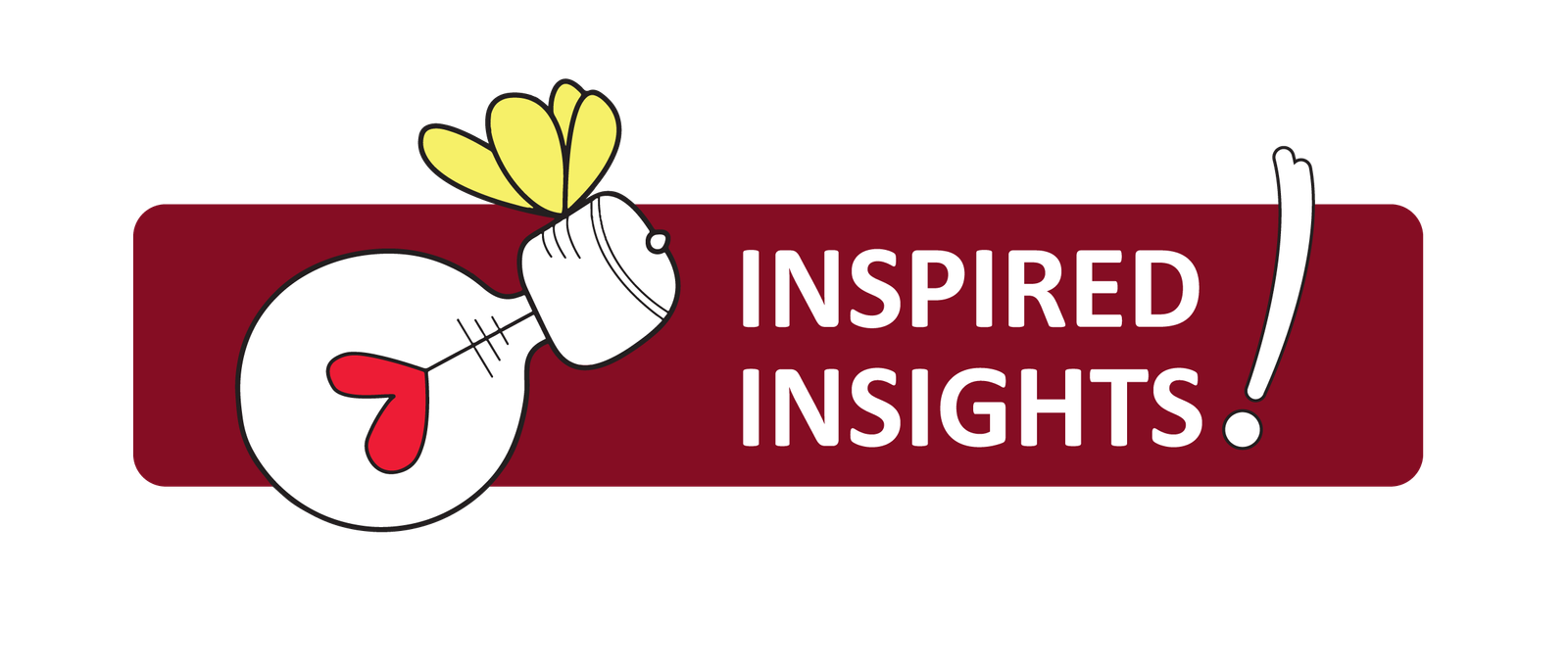
All Episodes
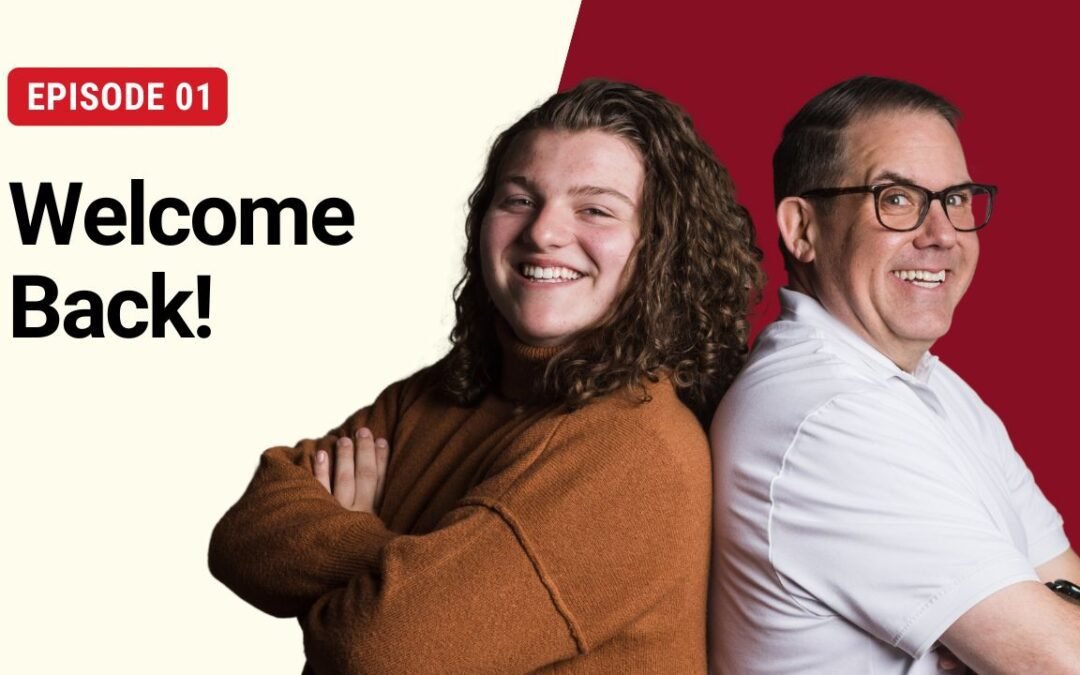
S3E1: Welcome Back
Welcome back to the Inspired Insights Podcast for the very first episode of Season Three! Join hosts Chris and Soren as they dive into a heartfelt conversation about the evolving world around us–and within us.
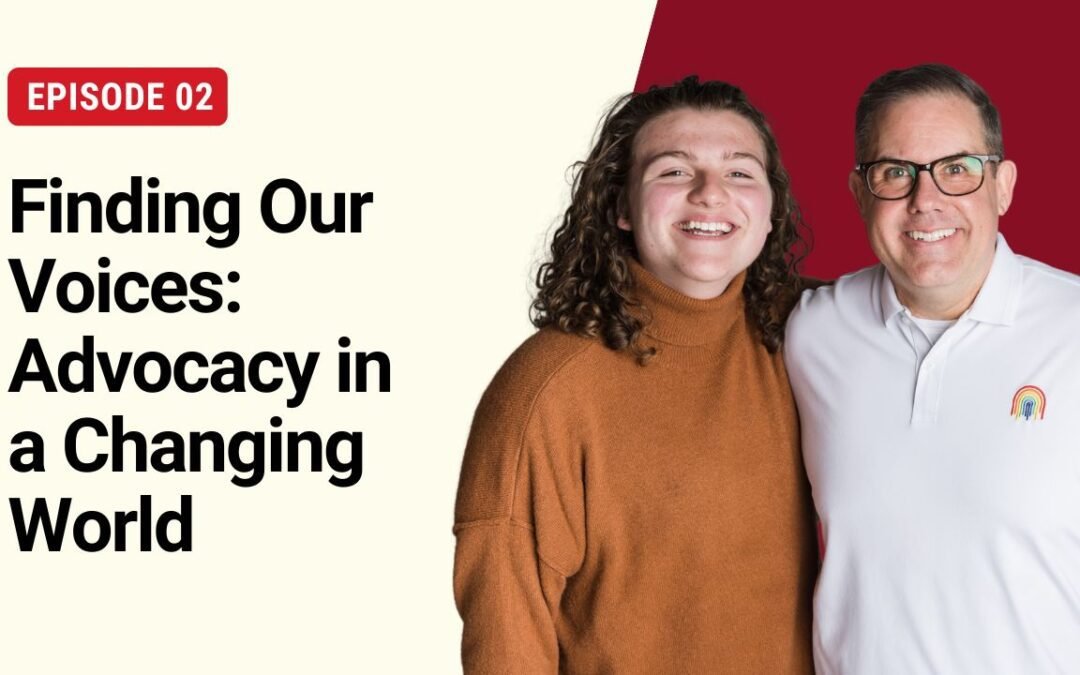
S3E2: Finding Our Voices: Advocacy in a Changing World
Chris and Soren sit down with seasoned lobbyist and tireless human rights advocate, Charlotte Warren, to explore the power—and the personal cost—of advocacy in today’s shifting political landscape.
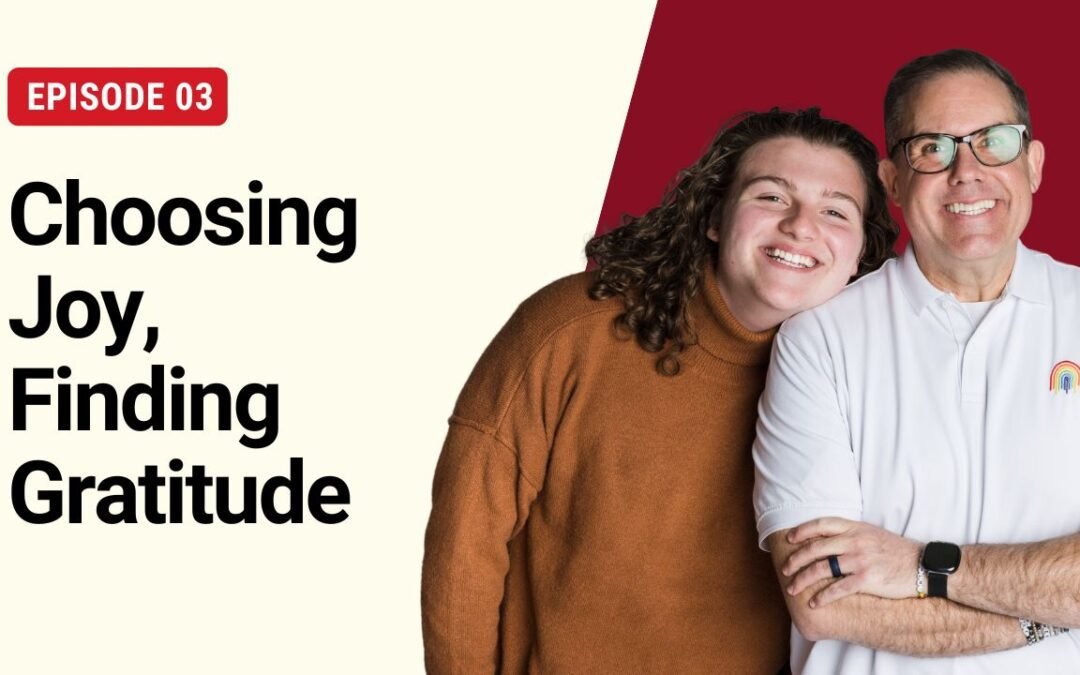
S3E3: Choosing Joy, Finding Gratitude
Chris and Soren unpack how reframing our thoughts can change the way we experience the world—from the inside out.

S3E4: The Power of Storytelling
Chris and Soren sit down with Authenticity Coach and Author Suzanne Carver to explore how sharing your story—and embracing who you truly are—can open doors to healing and transformation.
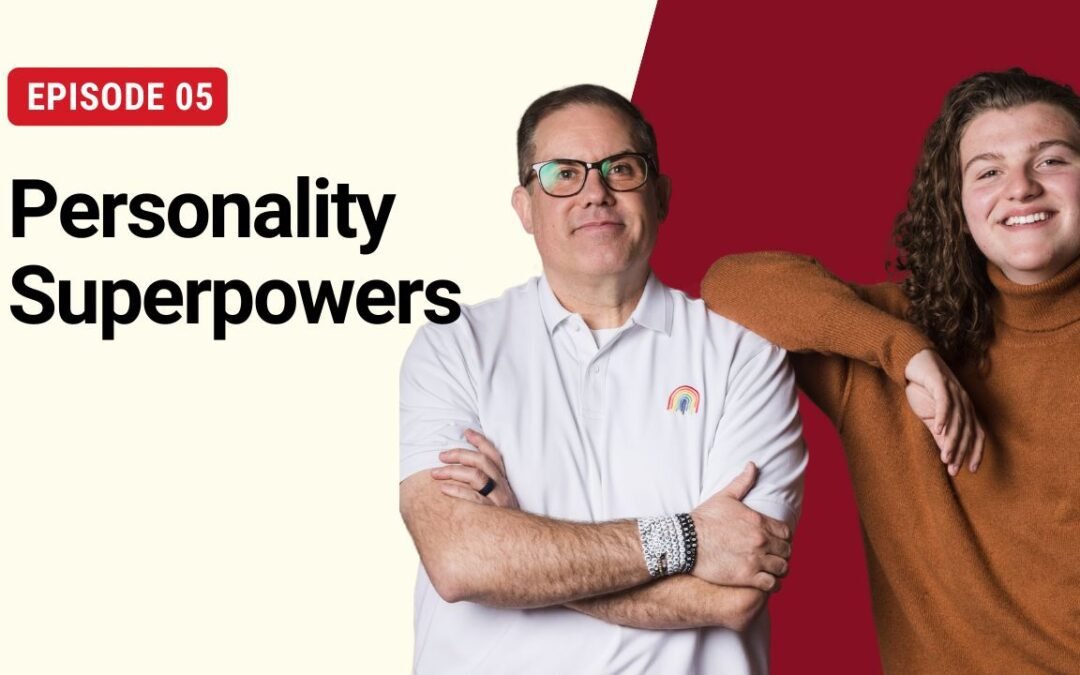
S3E5: Personality Superpowers
In this episode, Soren and Chris explore their Myers-Briggs personality types and how trauma and lived experience have influenced how they show up in the world.

S3E6: The Power of Pride
Together, they explore the deeper meaning behind Pride celebrations—why they matter, how they foster connection and visibility, and what it really takes to bring a community-wide event like this to life.
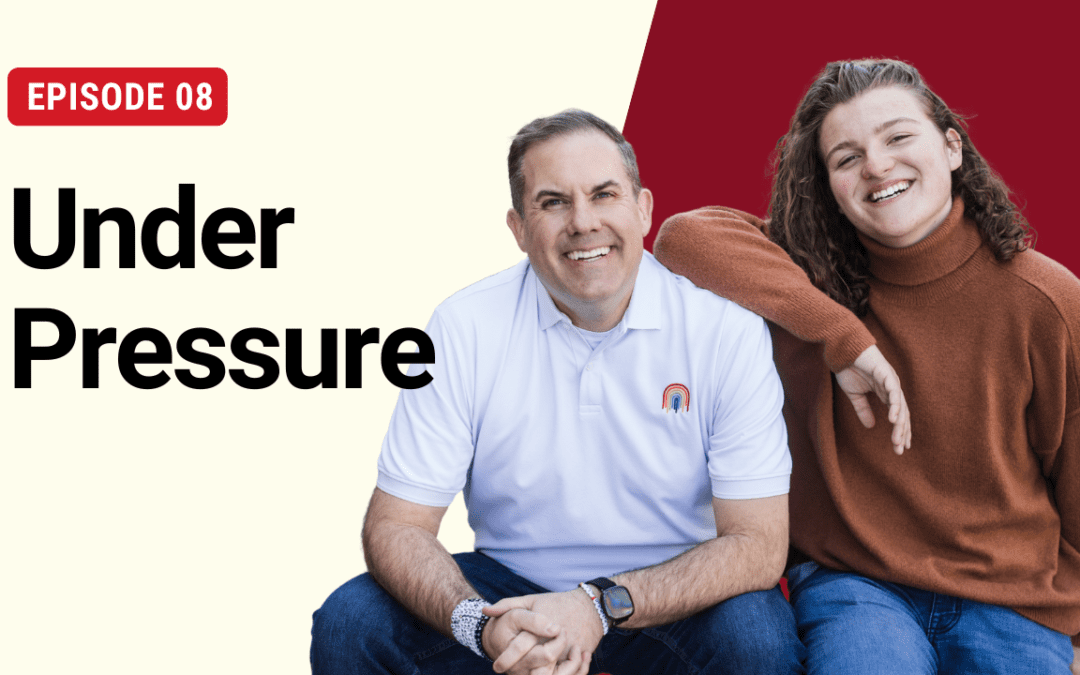
S3E8: Under Pressure
What happens when we let teens speak for themselves? In this candid and eye-opening episode, Soren and Chris hand the mic to two remarkable young adults—Sophie and Bennet
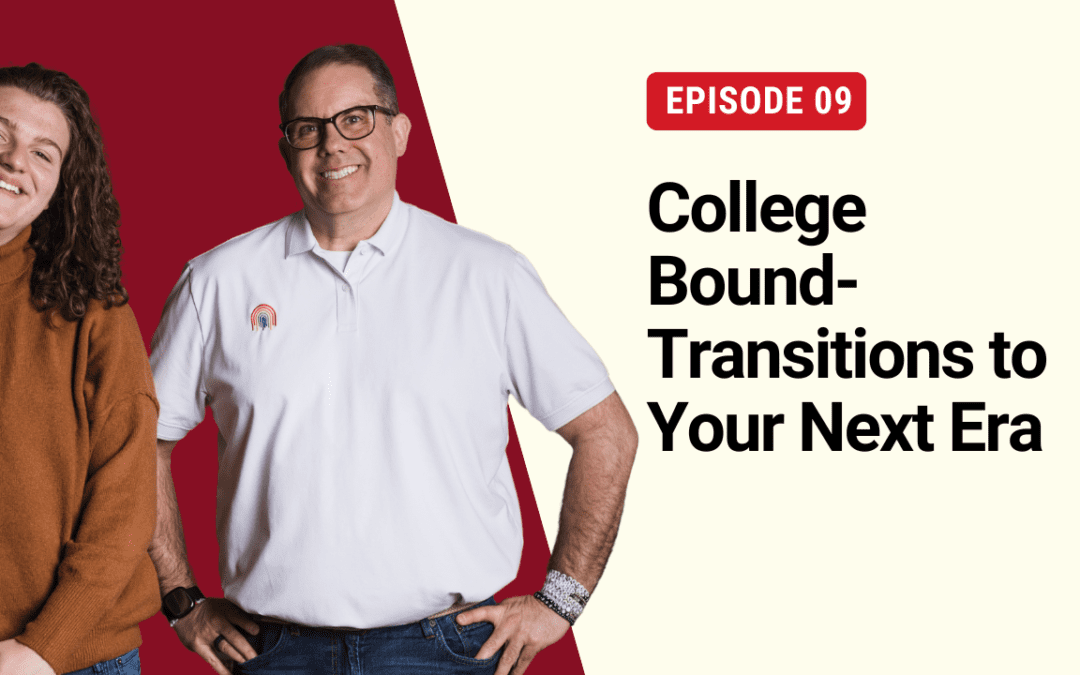
S3E9: College Bound: Transitions to Your Next Era
Soren and Chris sit down with two student life experts, Angela and Andi, to explore the powerful transition from high school to college—and how it reshapes community, mental health, identity, and daily life.
